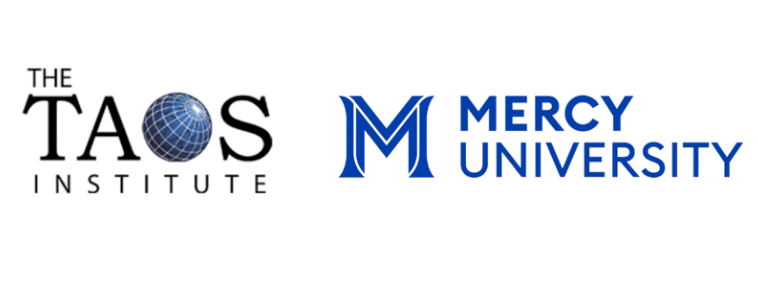Join Us by Submitting
Food for Thought Papers

The Call is Closed
The symposium invites reflective conversations on how our worlds are constructed and how we can participate in creating a better world. The social processes of collective participation, conversations, engagement, connections, language, meaning-making, and knowledge construction shape—and are shaped by—our understandings of education, community, business, finance, politics, health, environment, arts, religion, well-being, and more. These situated understandings are socio-relational accomplishments that arise from our everyday interactions with each other and our environments, contributing to our sense of living meaningful and equitable lives.
Food for Thought papers are short, provocative submissions that pose questions, share insights, or spark dialogue around the symposium theme. Your paper is intended to serve as a conversation starter, an invitation, a question, or a pondering to facilitate an engaged conversation in small breakout groups during the symposium. Your Food for Thought paper will be made available to all registered participants via an online portal (Taos Commons) prior to the Symposium. Do not expect to present your paper. Expect to be in conversation about these ideas/offerings.
We invite practice-, art-, inquiry—, or conceptual papers that explore the symposium theme of reimagining personal, public, and political lives, with a focus on how sociality and/or relational practices constitute these interconnected spaces in our lives. The papers should invite us to explore the making of our social worlds through everyday practices for engagement and/or social transformation. We seek relational practices embedded in social construction, viewing language, knowing, and sense-making as a socially dynamic process. And, as polyphonic beings, we are open to your interpretation of these ideas!
We offer the following questions as appetizers:
- How do dialogic practices inspire us to reimagine our public and political lives?
- How might we coordinate and support each other and our communities when we are afraid to speak?
- How do we embrace generative risk and vulnerability in our attempts to create humanizing social worlds?
- How might we avoid splitting our social and economic worlds as we create viable futures?
- How might we orient ourselves to non-dualism as we strive towards socially just futures?
- How do we exercise the power of collective imagineering?
- How do we cultivate imagination as a collective activity?
- How do we engage in radical presence?
- How do we honor the propensity to hide, run, and/or isolate yet remain present, engaged, and connected when we fear for our communities, families and/or ourselves?
- How can we come together to create change and transformation in organizational and community spaces?
- How do we create public spaces that sociologist Ray Oldenburg referred to as the “third space” beyond work and family?
- How do we do joyful justice?
- How do we cultivate the yet-to-emerge responsiveness to build our futures together?
- How do we perform an appreciative gaze?
- How do we relationally position ourselves in the presence of induced fear?
- How can we push beyond readily supplied answers to difficult questions?
- In what ways might relational creativity create new possibilities for the yet-to-be imagined?
- What’s a playful response to the contingent and the emergent?
- What’s improvisation got to do with thriving in organizations, communities, or families?
Timeline
Submit Abstract
Receive Acceptance
Register to Confirm Attendance
Upload Final Paper
What to Expect
You are welcome to submit more than one paper. Though to ensure access, the second submission will be considered after all authors have had at least one paper accepted.
Authors of the selected papers are required to confirm attendance by registering for the symposium by December 10, 2025. Non–attending participants’ papers will not be included in the symposium’s resource library.
Queries: Please direct any questions to Saliha Bava at sbava@mercy.edu and/or Jessica Fountas at jfountas@mercy.edu
Abstract Submission: Process
Submit your proposed abstract of 50 words along with keywords in the spirit of social construction. Committee will review and inform you of acceptance by Nov 30th.
Paper Submission: Length
The papers are 2-4 pages (1,000-1,500 words) in length, intended to serve as an invitation for conversations. Papers are submitted via the Symposium portal, accessible after you have confirmed your participation via registration.
Selection: Thematic Organizing
The papers will be organized thematically based on the key words you submitted. Registered participants will have access to these papers before they arrive via the Taos Commons symposium site.
Presentation: At the Symposium
Please recap your key offering as an invitation to further dialogue. Each breakout might have 3-4 thematically or provocatively matched FFT papers opening up and hosting the space for a sparkling dialogue.
Reimagining our personal, public, and political lives
Join us for a vibrant gathering across disciplines to deepen our connections and spark meaningful collaboration, re-imagining our personal, public, and political lives.
Contact
1-(440)-201-9118
Mercy University,
Manhattan Campus
47 West 34th Street
(Near Herald Square)
New York, NY 10001

